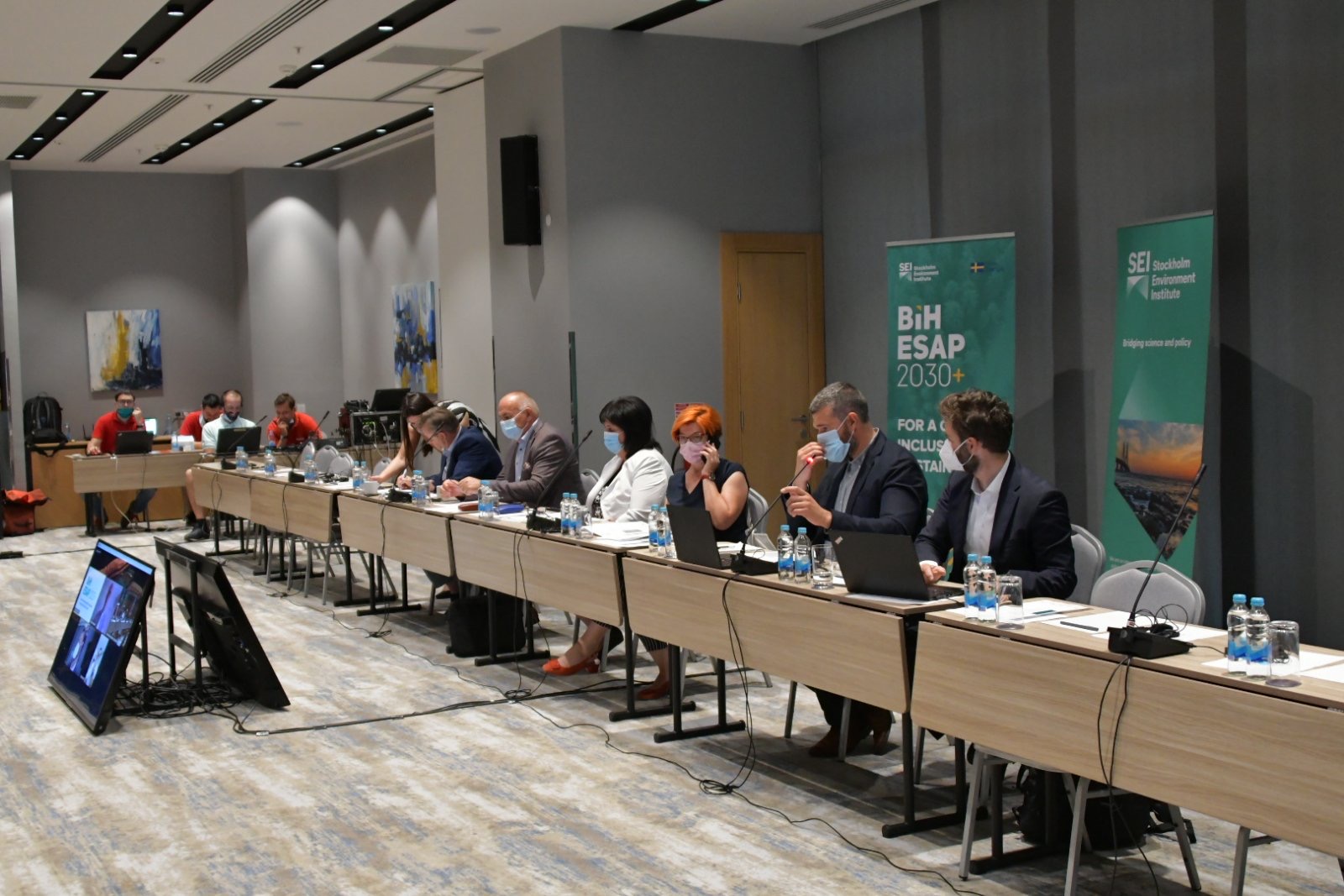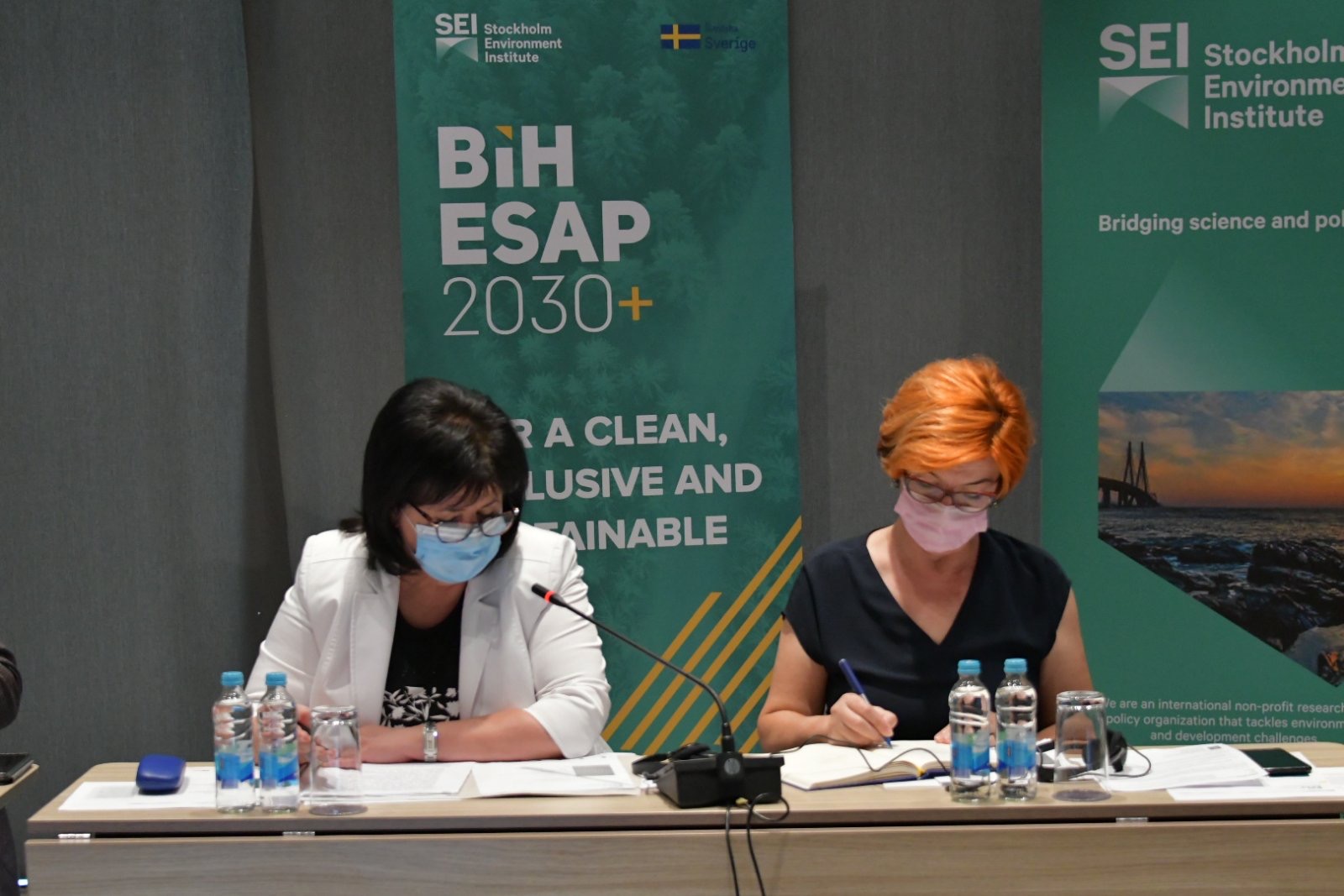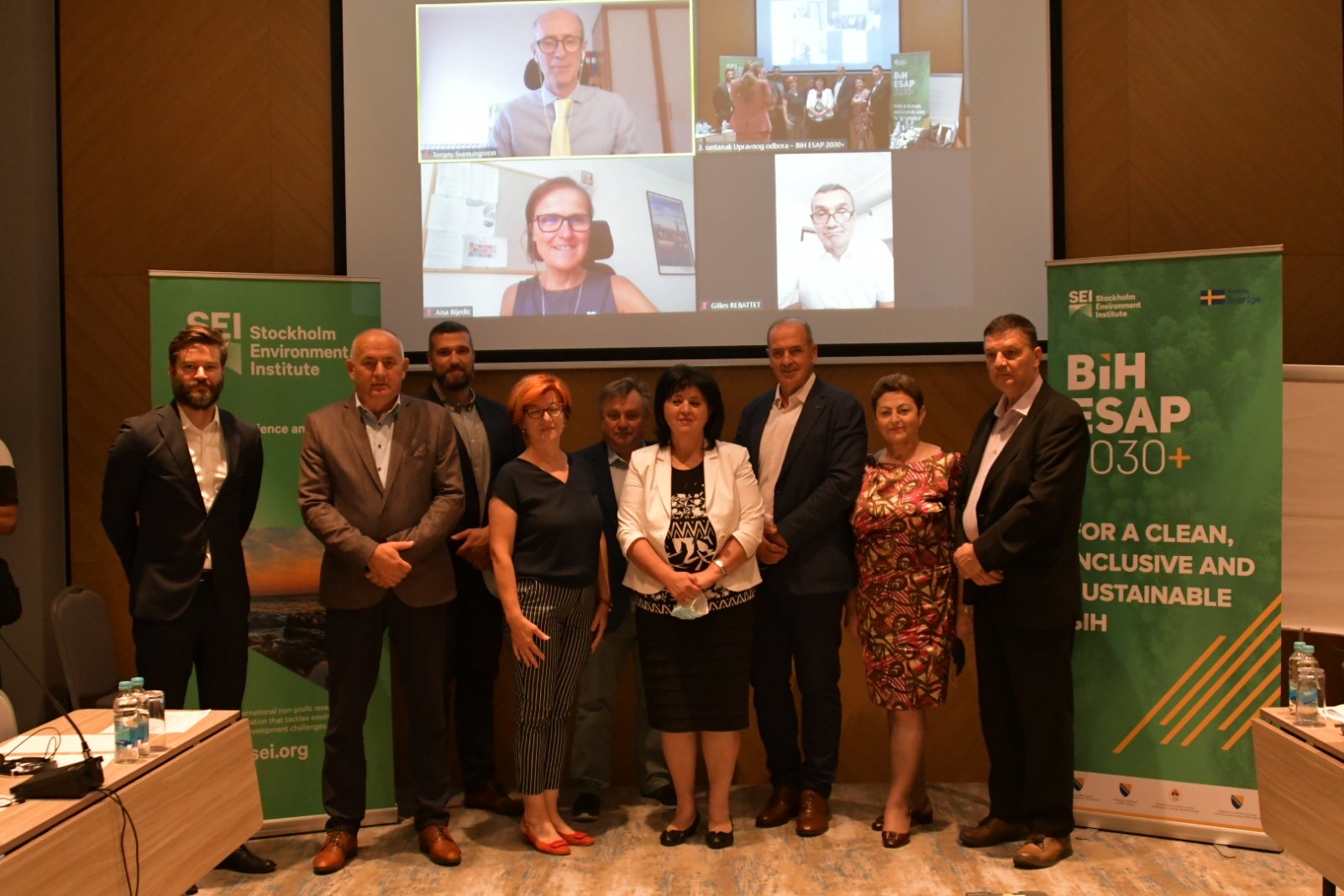Minister of spatial planning, civil engineering, and ecology of Republika Srpska, Srebrenka Golić, participated in the third meeting of the Steering Board of the ESAP 2030+ Project. The project aims to develop a so called Environmental Strategy and Action Plan of Republika Srpska, the Federation of Bosnia and Herzegovina, and the Brčko District, and ultimately of Bosnia and Herzegovina. The meeting gathered representatives of the Ministry of Foreign Trade and Economic Relations of BiH, Federal Ministry of Environment and Tourism, Government of the Brčko District – Department for Spatial Planning and Proprietary and Legal Affairs, and the Swedish Embassy and Delegation of the European Union to BiH.

BiH ESAP 2030+ will upgrade the environmental policy-making framework following the sustainable development principles. Its adoption, expected in 2022, will be seen as a major step in BiH’s efforts to align its regulations and procedures with the EU environmental acquis. It will also contribute to progress in the process of BiH becoming a member of the EU.
The project will produce strategies and action plans for the four levels of government in Bosnia and Herzegovina with ambitious thematic goals and clearly defined, agreed and adopted measures for the next 10 years. It will be based on the principles of circular economy and decarbonisation, which will contribute to the fulfilment of the goals of the European Green Agenda for the Western Balkans.
“It is a highly complex and robust document covering seven EU environmental policy areas: water, waste, biodiversity and nature conservation, air quality, climate change and energy, chemical safety and noise, resource management and environmental management. It is necessary to ensure public understanding of the environmental sector as a valuable development resource, and which contribute to economic development. It is also important to raise the awareness about the trend of environmental issues becoming a requirement for access to funds on the international financial market and from international donors”, – Srebrenka Golić, Minister of spatial planning, civil engineering and ecology of Republika Srpska.

Project Manager, Bernardas Padegimas, presented the progress in the project implementation and the results that had been achieved over the past one and a half years on behalf of the Stockholm Environment Institute, which was entrusted with the preparation of the BiH ESAP 2030+. Four rounds of Working Groups meetings have been held so far. They have identified key challenges and defined objectives for all seven ESAP areas. The baseline situation and objectives have been defined, and measures and responsible institutions for each objective have been proposed in the Action Plan. Financial evaluation of the measures, and prioritisation of the objectives and measures for each level of government will be carried out in the forthcoming period.
Torgny Svenungsson, Director of the Swedish International Development Cooperation Agency in BiH and Gilles Rebattat, Head of the Section for Economic Development, Infrastructure, and Natural Resources within the EU Delegation to BiH, noted that BiH ESAP 2030+ should offer a pragmatic solution for efficient environmental management in BiH, which will contribute to the ability of BiH to fulfil the international obligations and make progress in the EU integration process.







